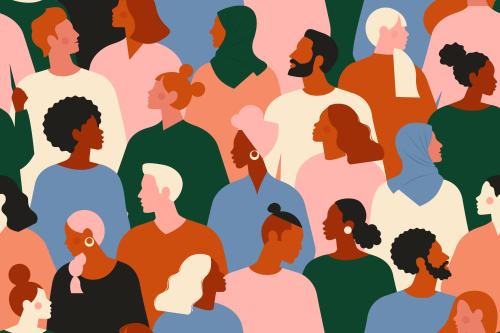If you want more content like this, subscribe to our newsletter.
This week in Class Notes:
-
- Why do women earn less than men on average? Parenthood, mostly.
- Incarceration leads to a 76% decline in a young adult’s assets, and a 34% decline in their net worth.
- Children without health insurance, low-income children, and children of color are less likely to be healthier than their parents were at the same age.
- This week’s top chart shows that by the end of the 20th century, few Americans still thought it was bad for preschoolers if their moms worked.
- State and local governments desperately need money, but taxing the rich more may lead some of them to move away. In this week’s choice opinion, Annie Lowrey argues therefore that the federal government needs to take the lead in raising tax revenue.
- COVID-19 threatens to undo the recent progress made by children in low-income families; check out our piece from Rebecca Ryan and others.
- Our spotlight this week is on a new report examining the role of housing and domestic migration in shaping upward mobility for middle- and working-class Americans.
- Also: tell us what being in the middle class means to you by submitting a short video!
What fuels the gender pay gap? Kids (sort of).
Despite an extraordinary “convergence in the economic roles of men and women” in the last half-century, sizable gender gaps remain in labor force participation, wages, and leadership roles. Patricia Cortés and Jessica Pan study the impact of parenthood on persistent gender gaps, using the 1976 to 2017 waves of the Panel Study of Income Dynamics. They estimate that the wage penalty for women and premium for men with children explains nearly two-thirds of the gender pay gap. Cortés and Pan investigate how children contribute to the gender pay gap, and recommend several policies to close it: expand paid parental leave (for mothers and fathers), subsidize childcare, make work more flexible, and make hours more predictable.
Incarceration’s wealth effect
Spending time in prison or jail reduces later income as well as a litany of relational and mental health issues. Using data from the 1997 National Longitudinal Survey of Youth, Michelle Maroto and Bryan Sykes evaluate the effect of arrests, conviction, and incarceration on young adults’ net worth, financial assets, and debt. They find that a criminal justice system intervention reduces people’s ability to build wealth between the ages of 25 and 30, important years for wealth accumulation. In particular, Maroto and Sykes find that an interaction with the criminal justice system can impact wealth building directly—by taking up time that could be spent building wealth—and indirectly by taking a toll on relationships (marriage facilitates wealth accumulation). An arrest reduces financial asset and debt value by around 50%, and incarceration reduces net worth by 34% and asset value by 76%.
Patterns in children’s “health mobility”
Jason Fletcher and Katie Jajtner gather data on parent and children health in kindergarten, first, third, fifth, and eighth grades from the Early Childhood Longitudinal Study. They compare the percentile rank of children’s reported health to their parents’ (at the same age), and track the persistence of health across the two generations. Parental income and health status affect their children’s health status, and their “health mobility.” Children with unhealthy or low-income parents are less “upwardly health mobile” than their peers, meaning that even when their health ranking improves compared to their parents, it isn’t by as much as much as their peers with richer or healthier parents. Similarly, children with unhealthy or low-income parents are more “downwardly health mobile” than their peers, i.e. when their health is worse than their parents at the same age, it is several percentiles worse than their peers at different income levels or with different parental health.
Top chart: Sentiment on working moms with preschoolers
This week’s top chart from Claudia Goldin, shows data from the General Social Survey on attitudes about childhood wellbeing and mothers’ employment. The proportion of respondents who agree with the statement “pre-school children are likely to suffer if their mother works” declined by around 50 percentage points from 1900 to 1995. Over that period of time, men have always been a few percentage points more likely to agree, except for during World War I when the gender gap nearly disappeared.

Choice opinion: If you soak the rich, will they leave?
“Cities and states across the country are facing a conundrum: They are desperate for cash because of the ravages of the COVID-19 recession. Rich people are pretty much the only ones who have any, because of both the recession and the yawning inequality that long predated it. But if cities and states raise taxes on the 1 percent, they worry that rich families might simply leave, no longer bound to their offices or their children’s schools. The conundrum is real, and the solution is easy enough: Let the federal government help states and cities circumvent the whole issue,” writes Annie Lowrey for The Atlantic.
Self-promotion: COVID-19 could erase parenting gains of the last 30 years
For decades, low-income children’s outcomes have improved as parenting styles converged across income groups. But the pandemic threatens that progress. Rebecca Ryan, Ariel Kalil, Susan Mayer, and Rohen Shah studied 586 low-income Black and Latinx families in rural Pennsylvania and Chicago in 2019, and again in spring 2020. They find startling trends: in Pennsylvania, rates of depression and the share of parents who were worried about paying for food rose sharply; in Chicago, the share struggling to make ends meet increased 10 percentage points (13% to 23%) from fall to spring. It’s no surprise, then, that the share of parents feeling overwhelmed by their parental responsibility spiked. Low-income students are fighting an uphill battle with remote learning, but their parents are struggling too. Low-income families need relief to prevent the potential loss of decades of progress for low-income kids.
Spotlight: Upward mobility
In their new report “Upward Mobility,” the Urban Reform Institute team investigates housing costs, domestic migration patterns, and the effect each has on upward mobility for middle- and working-class Americans. Charles Blain and his coauthors take issue with standard progressive arguments about the barriers to upward mobility, especially for Black and Latino Americans, and urge cities towards a lower-tax, lower-regulation policy stance. With the pandemic undermining “the constituency for urban living,” they fear that many Americans of color in cities will “remain stuck in high-cost, high-regulation economies.”
Call for videos: What does it mean to be in the middle class?
The Future of the Middle Class Initiative is looking for one-minute video submissions, introducing yourself (first name only) and answering one or more of the following questions:
- What does being in the middle class mean to you?
- How has being middle class shaped your identity?
- What is the most important issue facing the middle class today?
Please submit your videos to [email protected] by November 9, 2020. Your video could be featured in a public Brookings event highlighting voices from the American middle class on November 17, 2020. Check out our tips for at-home recording, and feel free to film with a cell phone—just make sure you hold your phone horizontally.
The Brookings Institution is committed to quality, independence, and impact.
We are supported by a diverse array of funders. In line with our values and policies, each Brookings publication represents the sole views of its author(s).








Commentary
Class Notes: Parenthood and the gender pay gap, incarceration’s wealth effect, and more
Wednesday, November 4, 2020